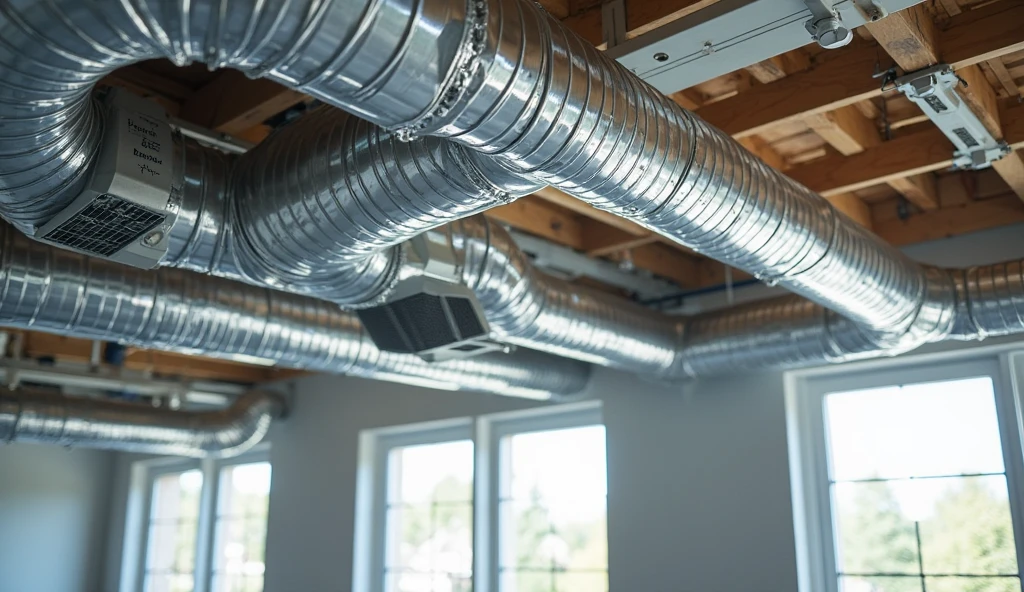Precision is crucial in sheet metal fabrication as it directly affects both structural integrity and aesthetic appeal. Accurate fabrication ensures components fit together seamlessly, which is essential for safe and reliable structures. It also contributes to the visual allure and satisfaction in projects ranging from industrial to residential applications. The advanced cutting techniques employed in this field—such as laser cutting, waterjet cutting, and CNC machining—play a significant role in achieving the needed precision.
1. Laser Cutting: This method uses a focused laser beam to cut materials, enabling high-speed, precision cuts with tight tolerances. It is ideal for metals and is widely used due to its efficiency and accuracy.
2. Waterjet Cutting: Utilizing high-pressure water mixed with abrasives, waterjet cutting can cut through thicker materials without producing heat, thus avoiding any material distortion.
3. CNC Machining: Computer numerical control machines allow for precise shaping and drilling of sheet metals, offering repeatable accuracy, and thus are indispensable in modern sheet metal fabrication.
Forming techniques complement cutting methods and include bending, rolling, and stamping, each serving unique applications. Bending adjusts angles and creates curves, rolling produces cylindrical shapes, and stamping imprints designs onto metal surfaces. These techniques are crucial across industries such as automotive, aerospace, and construction, showcasing the versatile nature of sheet metal fabrication.

Custom sheet metal fabrication provides tailored solutions to meet the specific demands of various industrial and residential applications. Industrially, sheet metal components form the backbone of systems such as HVAC and manufacturing, where precision and durability are paramount. Custom fabrication allows for specialized solutions, ensuring each component fits the unique requirements of its intended system, enhancing operational efficiency and reliability.
In residential settings, customized sheet metal elements find extensive applications. Tailored ductwork systems ensure efficient airflow, roofing solutions provide robust protection, and decorative elements like customized trims add aesthetic charm to homes. For instance, homeowners may commission bespoke metalwork for both functional and ornamental purposes, aligning the designs with their architectural vision.
Collaboration plays a significant role in customizing these solutions. Fabricators work closely with clients to understand and fulfill specific needs, from conception to completion. This client-centric approach ensures high satisfaction and success, as bespoke solutions are tailored to exact specifications, embodying both functionality and style. This dynamic process underscores the critical role of communication and partnership in delivering effective sheet metal solutions, whether for large-scale industrial setups or personalized residential projects.
The legacy of craftsmanship in Sheridan is a testament to the quality and dedication of local artisans who have honed their skills through generations. This heritage provides a deep understanding of regional demands and standards, ensuring that each piece of work not only meets but exceeds expectations. Local craftsmanship is synonymous with reliability, and when it comes to sheet metal in Sheridan, the artisans’ skills translate to unparalleled quality and trust among clients. By choosing Sheridan’s experts, businesses and residents alike can rely on the mastery of techniques that have been perfected over time, setting a benchmark for excellence in the industry.
In Sheridan, the use of state-of-the-art fabrication equipment is a cornerstone for achieving high precision and efficiency in sheet metal work. Advanced machinery, such as laser cutters and CNC machines, allows for meticulous accuracy and streamlined processes. Automated bending systems further enhance production capabilities, ensuring that every project is completed with speed and precision. The integration of such cutting-edge tools not only boosts production speed but also maintains the highest quality standards possible. For instance, studies have shown that companies utilizing advanced equipment often experience significant improvements in production quality and customer satisfaction, highlighting the importance of technology in modern fabrication practices.
Gag Sheet Metal, a family-owned business, has evolved significantly over the past century, transforming from the Gag/Ranweiler Tin Shop into a multi-service contractor renowned in Southern Minnesota. The company's journey began in 1904, primarily focusing on roofing and rudimentary repairs before expanding into diverse areas like HVAC, plumbing, and sheet metal fabrication. Key milestones like acquiring Schanus Plumbing & Heating and expanding to larger projects have showcased the company's adaptability and growth. By integrating innovative approaches, Gag Sheet Metal has adeptly met the varied needs of its clientele, ensuring its sustained success and relevance in a competitive industry.
Gag Sheet Metal has successfully expanded its services across Southern Minnesota, a move that underscores its business growth and responsiveness to community needs. Its projects, ranging from school buildings to recreation centers, have bolstered local economies and fostered strong community ties. Feedback from clients often highlights the company's commitment to quality and reliability. John Gag's leadership has facilitated a geographical expansion, responding to demand beyond New Ulm and engaging in projects as far as Tennessee and Michigan. This growth strategy not only capitalizes on existing customer relationships but also positions Gag Sheet Metal as a pivotal contributor to the regional infrastructure and development.
Local metal fabrication companies play a vital role in supporting essential infrastructure projects like bridges and roads. By partnering with local governments and organizations, these companies ensure the successful implementation and maintenance of these infrastructures, thus fueling regional development. Such partnerships emphasize the critical role these companies play in community development, enhancing the quality of life for residents. Notable projects exemplifying their impact include the construction of new overpasses that alleviate traffic congestion and the reinforcement of local bridges to improve safety standards.
Metal fabrication significantly contributes to regional economic health by creating employment opportunities and stimulating local industries. These services are integral to various sectors, including construction, automotive, and aerospace, where sheet metal is a foundational component. The interconnectedness between local businesses and metal fabrication services fosters growth, as the demand for metalwork leads to the expansion of related industries, thereby bolstering the local economy. This symbiotic relationship not only drives innovation but also ensures the sustainability of the community’s economic ecosystem.
Reliable project timelines are crucial in sheet metal fabrication to maintain efficient operations and meet client deadlines. When timelines are clear and adhered to, fabricators can smoothly coordinate production schedules and allocate resources effectively, thereby reducing downtime and increasing productivity. Material availability plays a significant role in successful project planning. Factors such as supply chain disruptions and fluctuating demand can impact the availability of materials, making it essential for fabricators to have contingency plans and reliable suppliers. Effective communication and partnership between fabricators and clients can mitigate these challenges: cultivating transparent discussions about project goals, timelines, and material requisites ensures that both parties remain aligned throughout the fabrication process.

Emphasizing sustainability in modern metal fabrication is not only beneficial for the environment but also improves industry reputation and efficiency. Sustainable practices such as recycling scrap metal, implementing energy-efficient processes, and sourcing materials responsibly contribute significantly to reducing waste and environmental impact. For example, recycling scrap metal can save up to 92% of energy compared to primary metal production, according to environmental studies. Adopting eco-friendly practices supports the global trend towards sustainability, offering both ecological and economic advantages. By integrating such practices, fabricators can help reduce carbon emissions and promote a greener future for the metal industry.
What are the common sheet metal cutting techniques used in fabrication?
Common cutting techniques include laser cutting, waterjet cutting, and CNC machining. Laser cutting uses a focused beam for precision, while waterjet employs high-pressure water for thicker materials, and CNC machining offers highly accurate shaping.
How can custom sheet metal solutions be applied in residential settings?
In residential settings, custom sheet metal solutions can be used for ductwork, roofing, and decorative elements, providing both functional and aesthetic enhancements.
Why is collaboration important in sheet metal fabrication?
Collaboration between fabricators and clients ensures tailored solutions that meet specific needs, enhancing satisfaction and guaranteeing project success.
How does local craftsmanship benefit sheet metal fabrication in Sheridan?
Local craftsmanship offers reliability and excellent quality due to years of honed skills, ensuring projects exceed regional standards and client expectations.
What sustainable practices are prominent in modern sheet metal fabrication?
Sustainable practices include recycling scrap metal, implementing energy-efficient processes, and responsible sourcing of materials to reduce waste and environmental impact.